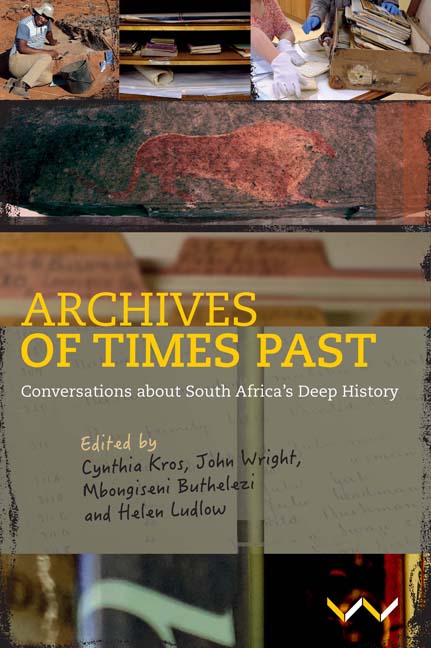Book contents
- Frontmatter
- Contents
- List Of Illustrations
- Acknowledgements
- Editorial Note
- Map
- PART I FIRST THOUGHTS ABOUT THE ARCHIVE
- PART II COMMENTARIES AND CONVERSATIONS
- PART III BECOMING EXPLORERS
- PART IV ENGAGING WITH ARCHAEOLOGY AND ROCK ART
- PART V CONFLICTING OPINIONS
- PART VI FURTHER THOUGHTS
- Glossary
- Contributors
- Index
Chapter 13 - Life with the James Stuart Archive
Published online by Cambridge University Press: 26 May 2022
- Frontmatter
- Contents
- List Of Illustrations
- Acknowledgements
- Editorial Note
- Map
- PART I FIRST THOUGHTS ABOUT THE ARCHIVE
- PART II COMMENTARIES AND CONVERSATIONS
- PART III BECOMING EXPLORERS
- PART IV ENGAGING WITH ARCHAEOLOGY AND ROCK ART
- PART V CONFLICTING OPINIONS
- PART VI FURTHER THOUGHTS
- Glossary
- Contributors
- Index
Summary
A TELEGRAM, A FILING CABINET AND 78 FOLDERS
Johannesburg, December 1970. The telegram read:
council offers appointment as junior lecturer department history and political science at notch R3900 of scale R3000 x 150 – R4050 per annum with effect from 1st january or as soon as possible thereafter stop please confirm by telegram your acceptance upon receipt of which formal letter of appointment will be despatched.
That is how I learnt that I had landed a new job in the Department of History and Political Science at the University of Natal in Pietermaritzburg. At the humble rank of junior lecturer, I was to be research assistant to Colin Webb, one of the senior members of the department. He was engaged in setting up what he called the Stuart Papers project, and I was to help him in it. I have previously described something of the project in an academic article titled ‘Making the James Stuart Archive’. Here I give a more personal account of my involvement in it.
I knew virtually nothing about the Stuart Papers, but was very pleased to have landed the job. In conversations I had had with Webb when I applied for it, he had made it sound highly stimulating for someone who liked nothing better than poring over old documents. It would involve working on a large collection of records of oral histories written down by Natal colonial official James Stuart in the early years of the twentieth century. Stuart had devoted much of his spare time to seeking out individuals, mostly older African men, who had a reputation as authorities on the past. In a mixture of English and isiZulu, he had made detailed notes on what they told him. After Stuart's death, his wife had sent his papers to Killie Campbell, a well-known collector of books and papers in Durban. When she died in 1965, ownership of the contents of her library, including Stuart's papers, passed to the University of Natal.
At that time, academic historians in Africa, Europe and North America were just beginning to take African history seriously as a field of study. Researchers were beginning to learn that Stuart's papers were among the richest – perhaps the richest – sources of evidence available on the history of African societies in the Natal region before colonial times.
- Type
- Chapter
- Information
- Archives of Times PastConversations about South Africa's Deep History, pp. 182 - 196Publisher: Wits University PressPrint publication year: 2022



